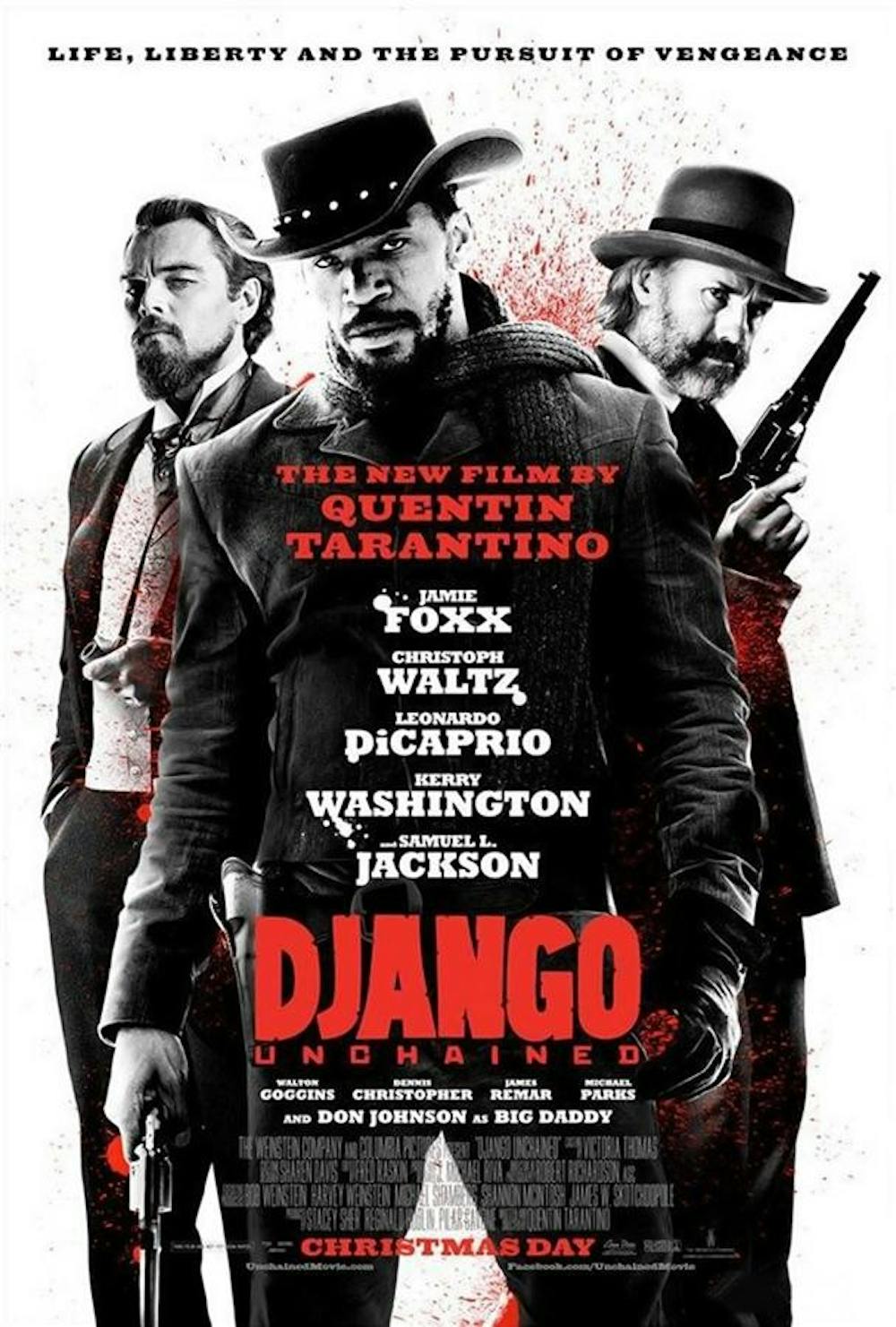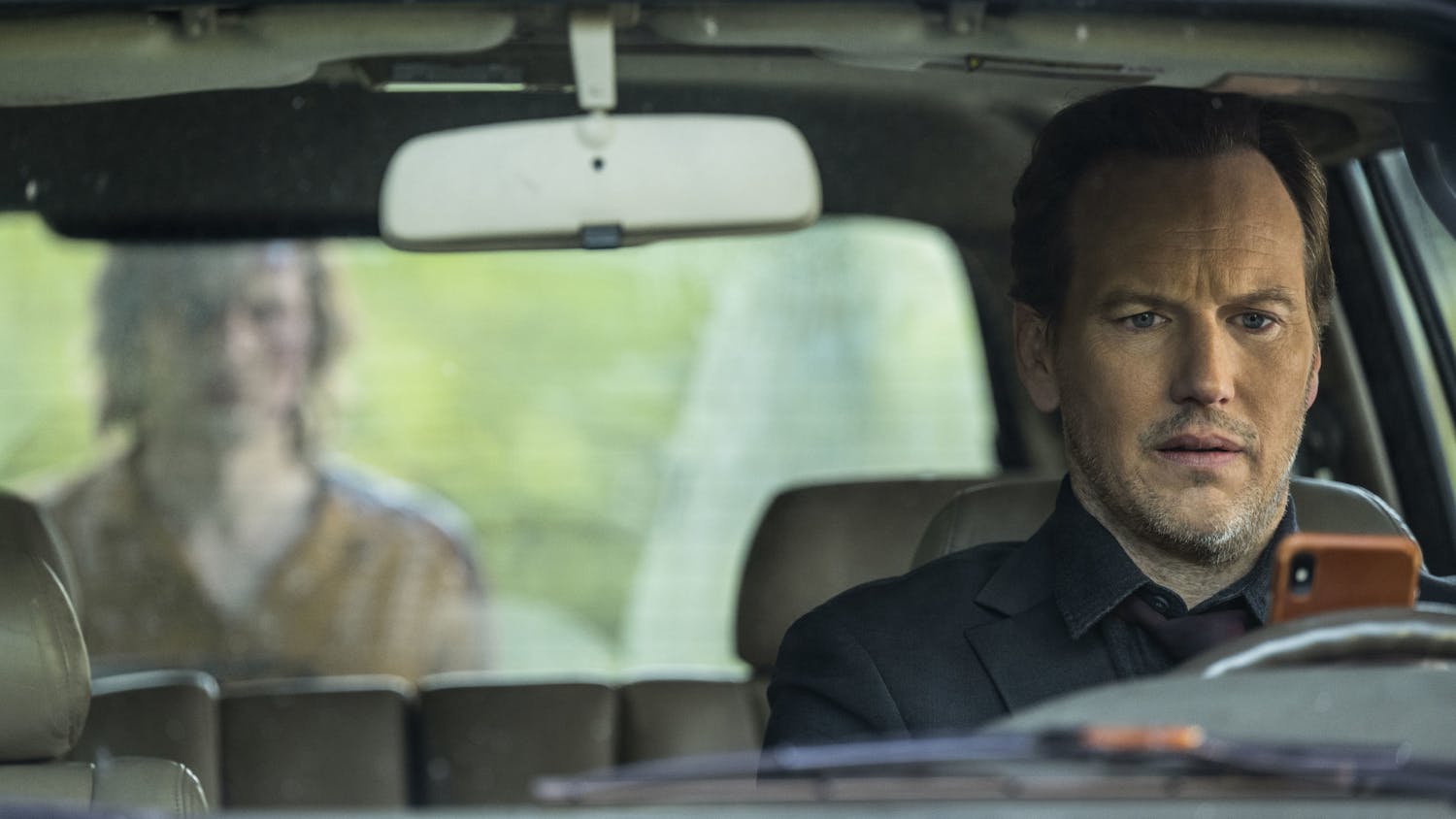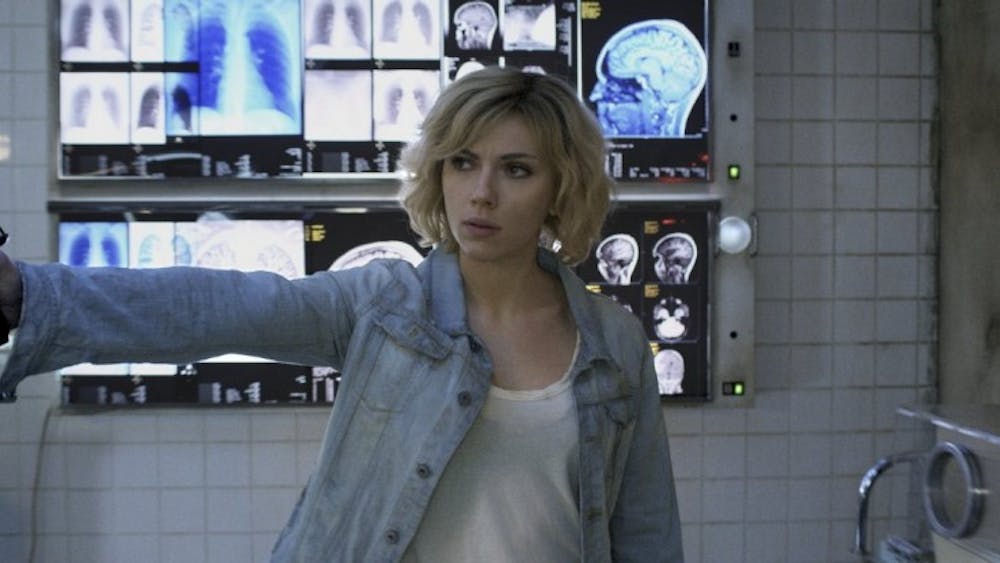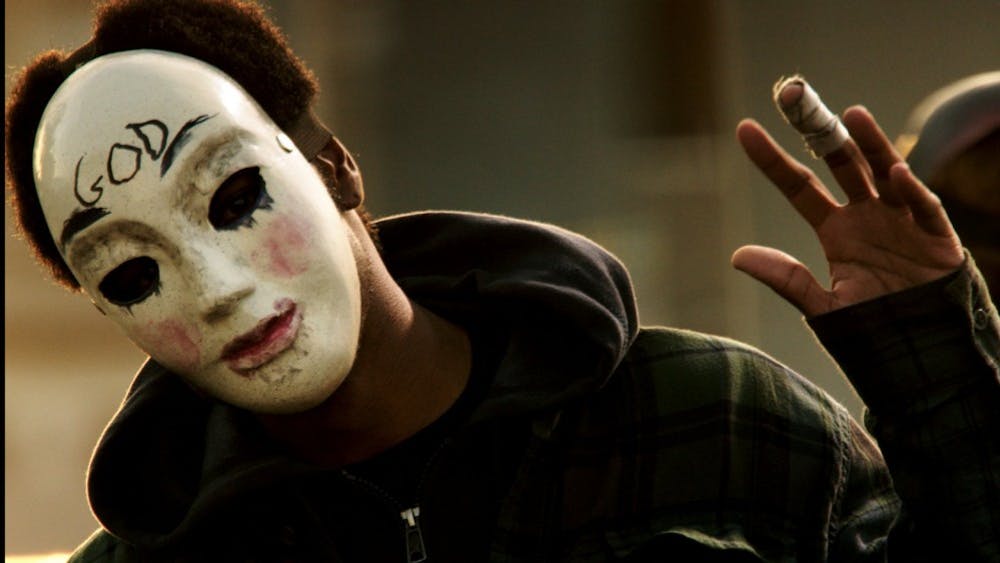Quentin Tarantino’s Django Unchained opens with a brutal depiction of slavery: a group of enslaved black men shackled together, shuffling through freezing conditions barefoot, irons scraping their ankles raw while white slavers look down at them from horseback.
Tarantino could have started with a merciless whipping scene, or a branding, or a thumbscrew, but he instead chose to begin with a more subtle brutality. Although the movie is indeed a “Spaghetti Western,” it was made with the utmost respect for the victims of slavery. He artfully resisted gore in the opening in the interest of sensitivity, although he made up for it in the rest of the movie, in typical Tarantino style. The film could be called nothing less than a shoot ’em up.
The level of gore and action, which Tarantino is known for, may have been what caused so much controversy before the film was even released. People were preemptively offended, afraid Tarantino’s signature exaggerated style would be insensitive to the history of slavery and be offensive to black Americans. Director Spike Lee publicly boycotted the film and tweeted, “American Slavery was not a Sergio Leone Spaghetti Western. It was a Holocaust. My ancestors are slaves. Stolen from Africa. I will honor them.”
Although I respect Spike Lee, I completely disagree with his reasoning. To me, it honors the victims of slavery and their predecessors to tell their story in innovative ways and carve out a place for the slave narrative in pop culture, a narrative that revolves around an empowered Jamie Foxx.
Although a white character initially helps him, Django is the one with the power and the agency in the story, not his white counterparts. Moreover, through Samuel L. Jackson’s portrayal of an evil house slave, Tarantino demonstrates his grasp of the complexity of racial roles in slavery. The story is not just black and white, literally and figuratively.
Django is not a film about the plight of the poor defenseless black slave. The slaves are victimized in awful ways, but that is not the focus. Instead, we are given a hero, a cowboy in Foxx’s excellent depiction of Django. It is clear he takes the role and the idea very seriously, but he is authentic because he doesn’t take himself too seriously. He is natural as Django. Leading lady Kerry Washington is perfect as the damsel in distress waiting for her knight. She sells entire scenes with just the emotion in her face and eyes. Their on-screen chemistry ties everything together impeccably.
Tarantino’s latest film is an essential piece in the American film canon on slavery. Slavery should not be something we learn about during one month in the year. Its implications in society today must be discussed. Tarantino provokes this necessary awareness and discussion with this film. He stays true to the facts of slavery in America but adds depth and story that is often missing from previous portrayals.
Django overcame controversy

Get stories like this in your inbox
Subscribe





